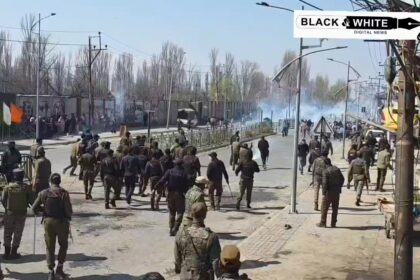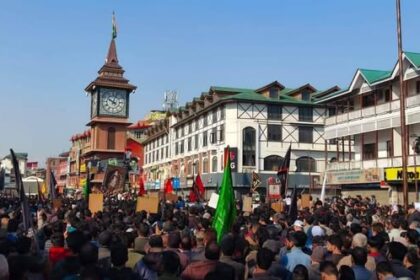India Regulates Chenab River Flow After Pahalgam Attack; Pakistan Reports Acute Water Shortage
India has closed the sluice gates of the Baglihar and Salal dams in Jammu and Kashmir, sharply reducing the flow of the Chenab River into Pakistan. The move comes in the aftermath of the Pahalgam terror attack, which claimed 26 lives, and follows New Delhi’s decision to suspend the Indus Waters Treaty (IWT). The treaty, signed between India and Pakistan, governs the distribution of the waters of the Indus River and its tributaries.
According to local reports, the decision to halt water release through the Baglihar Hydroelectric Power Project and the Salal Dam has caused parts of the Chenab riverbed to dry up. Only minimal water is being released through a single gate of each dam to mitigate the environmental impact on aquatic life, officials said.
The Chenab, part of the Indus River System governed by the 1960 treaty brokered by the World Bank, plays a vital role in Pakistan’s agriculture, particularly in the Punjab province. The other rivers in the system include the Jhelum, Ravi, Beas, and Sutlej.
The suspension of water flows follows a series of stern measures announced by the Indian government in response to the April 22 attack in Pahalgam, where terrorists killed civilians, including 26 tourists. The Centre has since withdrawn trade and cultural ties with Pakistan, declared key Pakistani High Commission military personnel persona non grata, and shut down the Attari-Wagah border for movement.
Pakistan, meanwhile, has reported a sharp decline in the Chenab’s water flow. According to Dawn News, data from the Marala headworks in Pakistan’s Punjab province showed a drop from 35,000 cusecs on Sunday to 3,100 cusecs by Monday morning.
“They have almost blocked the River Chenab flows to downstream Pakistan after they took the decision on Sunday,” a senior official of the Punjab irrigation department in Pakistan told Dawn.
The Indus River System Authority (IRSA), which oversees water distribution in Pakistan, expressed concern at an emergency advisory committee meeting in Islamabad. The panel warned that the move could exacerbate water shortages during the ongoing Kharif crop season, which is already facing a projected 21 per cent shortfall.
Officials said the situation would be reviewed daily, and further updates on water allocations would be issued depending on the continuation of reduced river flows.
Despite the controlled outflows, certain regions witnessed temporary surges in water levels due to heavy rainfall. In the Akhnoor area of Jammu, authorities issued evacuation advisories on May 2, warning locals of a possible rise in Chenab’s water level.
Police and local administration teams patrolled the riverbanks, urging people to avoid venturing near the river amid rising currents.










